Celebrating 75 Years of Israel with Our 2023 Mishlachat
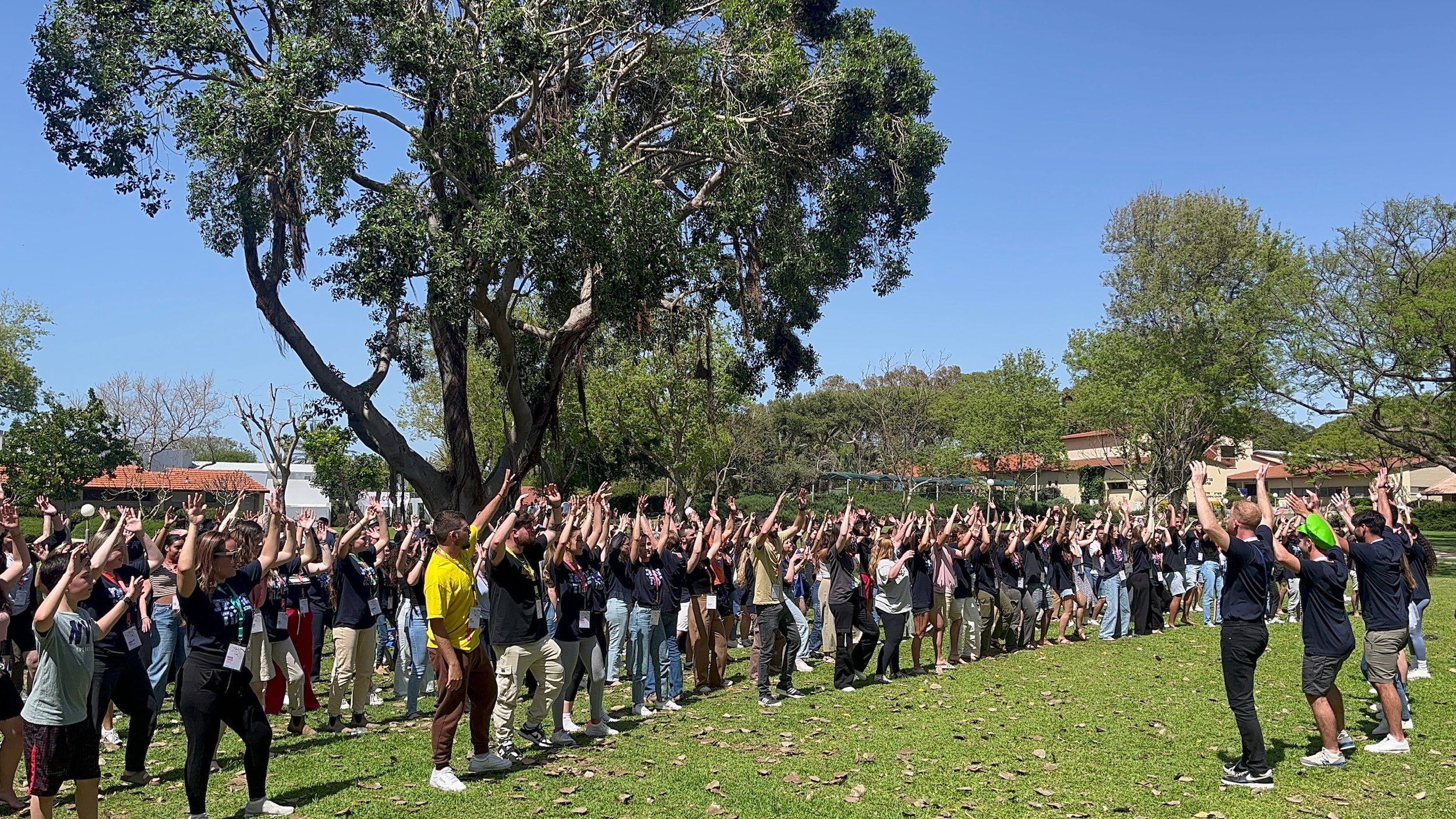
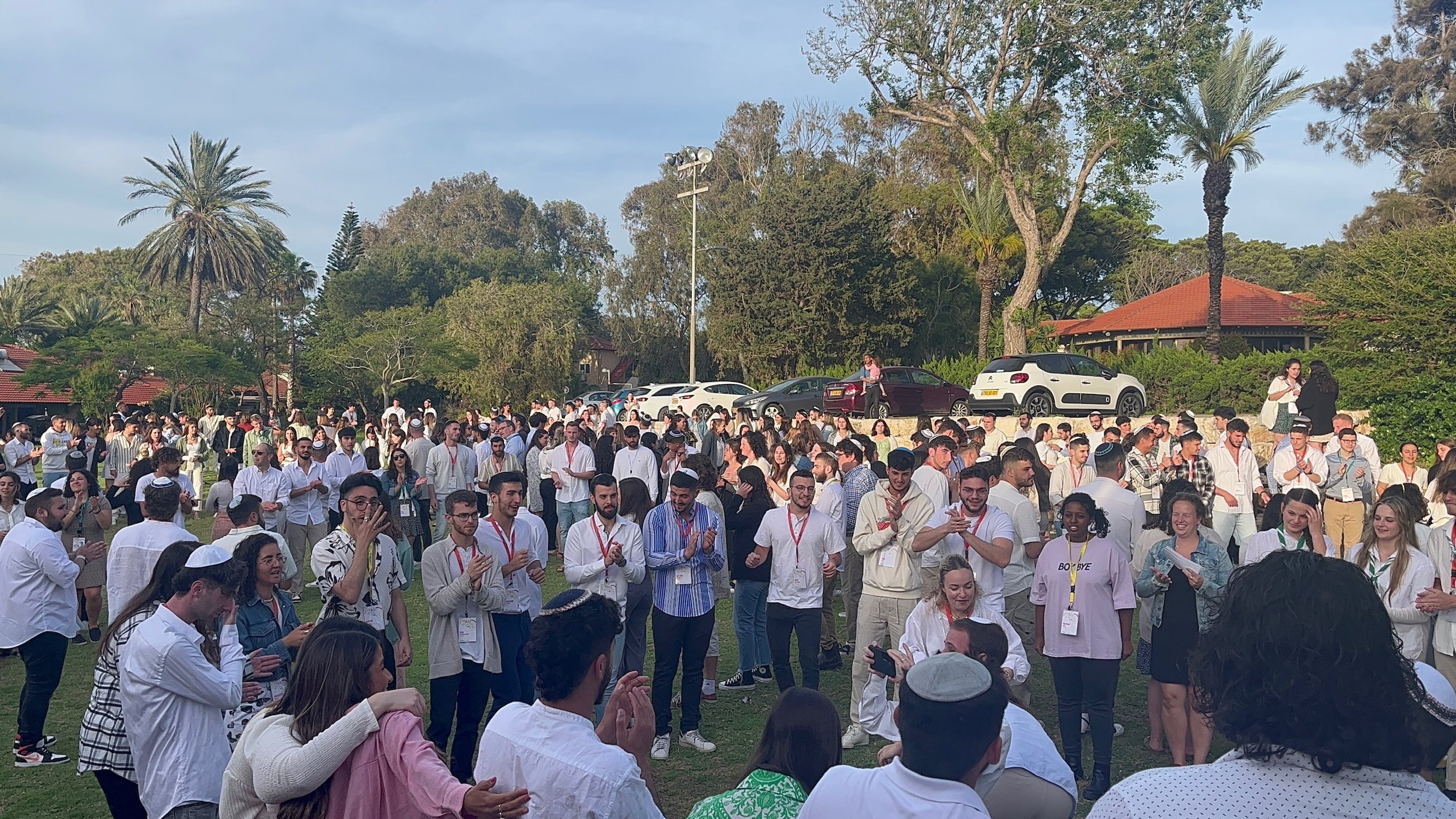
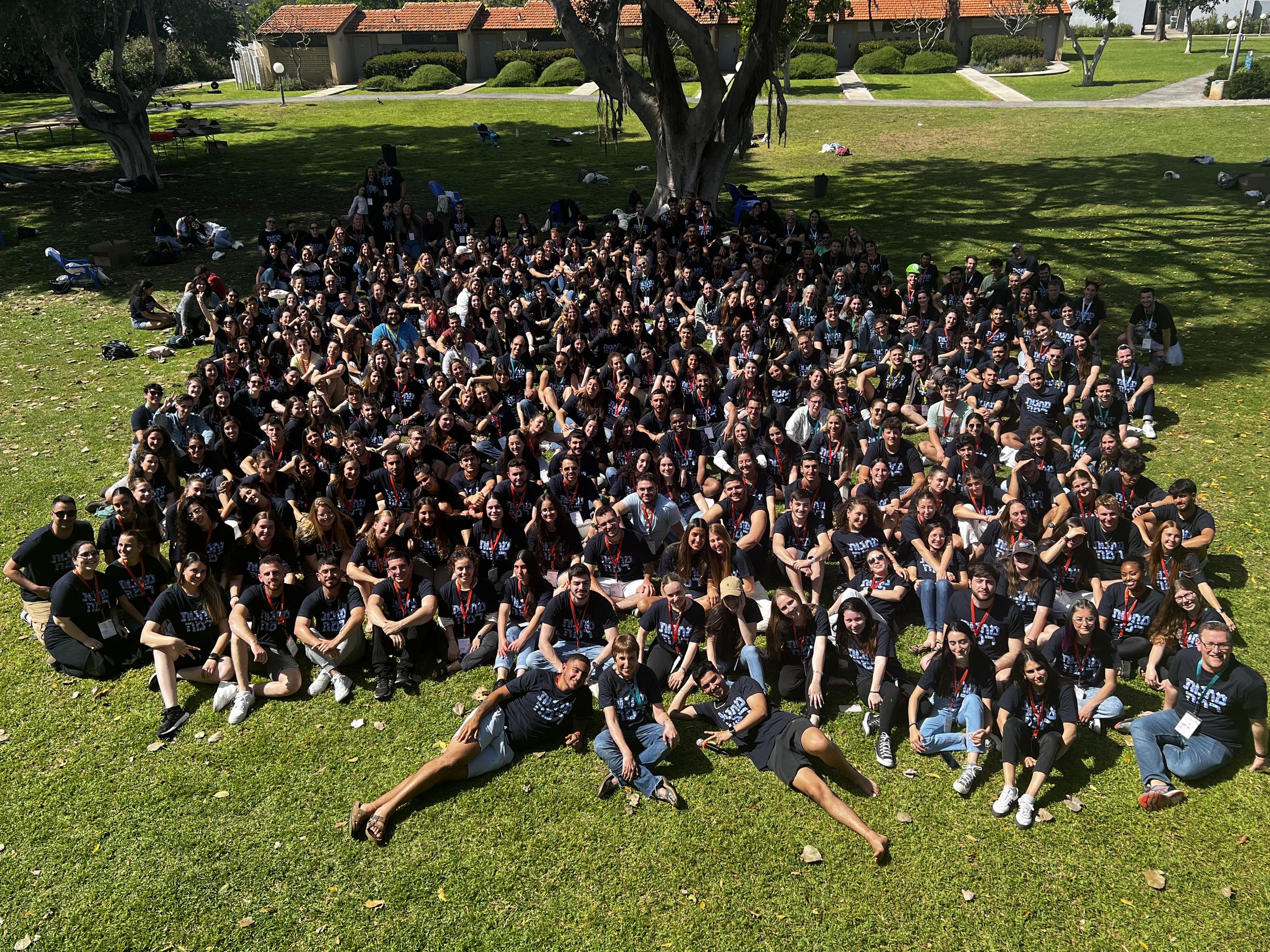
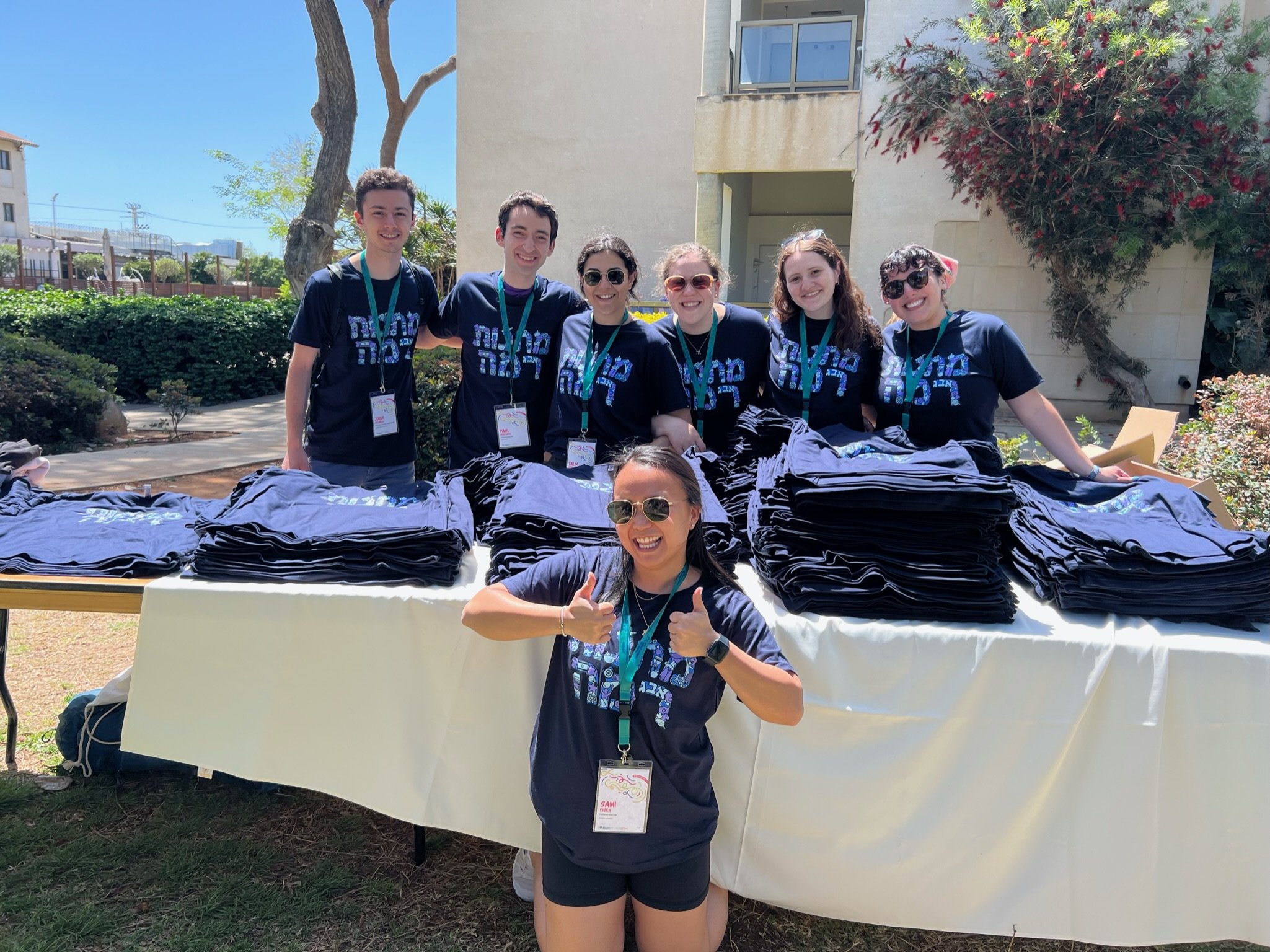
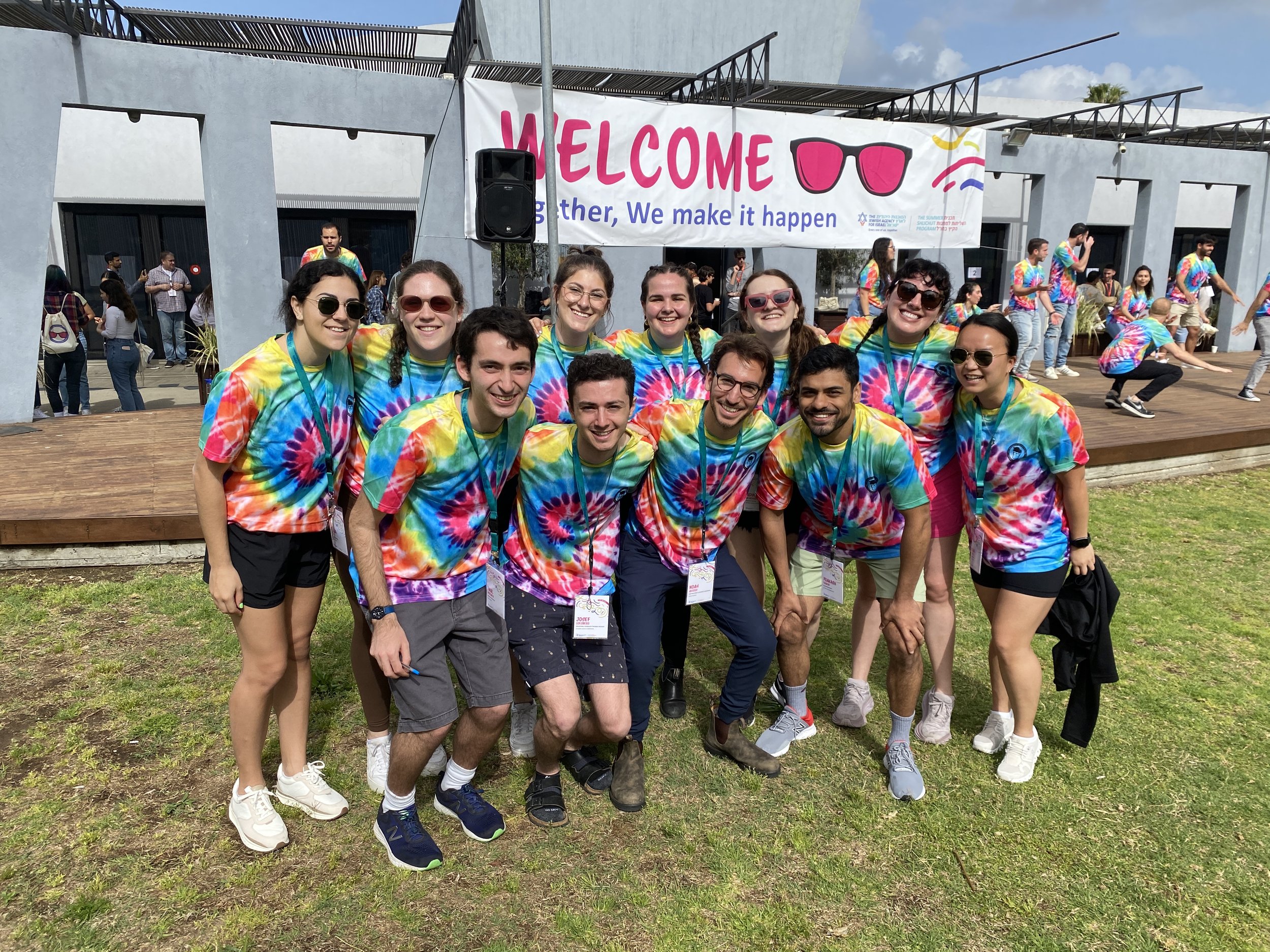
One of the highlights of the busy pre-summer preparation season is the training of mishlachat members at Kibbutz Shefayim. This year, more than 30 Ramah professionals from North America attended, including 13 members of the Kerem cohort of young professionals working year-round for Ramah camps.
In partnership with the talented staff of the Jewish Agency, we began the training process for 300+ shlichot and shlichim coming to work at Ramah camps this summer. We joyously danced together, learned about the core values of Ramah, covered some of the basics of camper care, and listened to powerful stories about the impact of shlichut.
We heard stories about how coming to a Conservative Jewish camp for the first time upended longstanding notions of what Judaism could and could not be. We heard stories about the lifelong relationships that began at camp and continue to flourish because of the connections first forged at Ramah. We heard stories about choosing to work with our Tikvah programs and feeling that it was a life-altering experience.
We all noticed the special timing of this year’s Shefayim training. It fell right in between Yom HaShoah and Yom HaZikaron/Yom HaAtzmaut, commemorating 75 years of Israel’s sacrifices and triumphs. Sue Rand-Lakritz, program director at Camp Ramah in the Poconos, stood in front of the group and shared about Michael Levin, a Ramah Poconos alum and chayal boded (lone soldier) who fell in the Second Lebanon War. Most of the mishlachat members listening to Sue already knew about Michael’s sacrifice from school, their youth groups, or the army. It was so moving to see the wide-reaching impact of his story.
On a more celebratory note, National Ramah director Amy Skopp Cooper pointed out to all the shlichim and shlichot that Ramah was founded in 1947, just a year before the State of Israel, and that Ramah and Israel have grown up together. She told the powerful story of the summer of 1967, when Israelis coming to Camp Ramah in Wisconsin arrived late, due to the Six-Day War. They got to camp in the middle of the night after a 10-hour ride from Chicago and it was pitch black. They entered the chadar ochel for some food. The lights suddenly turned on, and the whole camp was there in the chadar, clapping and cheering.
This year’s Shefayim training also came at a moment of deep division in Israeli society. Even as many people there had strong opinions about what steps Israel should take to maintain its democratic and Jewish character, we encouraged shlichot and shlichim to come as they are. “It doesn’t matter to me,” Amy implored them in Hebrew, “if you are right-wing or left-wing or in the center. What matters to me is that you bring empathy, ahavat Yisrael, and your authentic story to camp.”
This year’s Shefayim, with its focus on sacrifice, celebration, and sharing personal narratives, lays the foundation for a summer of dialogue and connection that we hope will strengthen bonds among the Jewish people.
